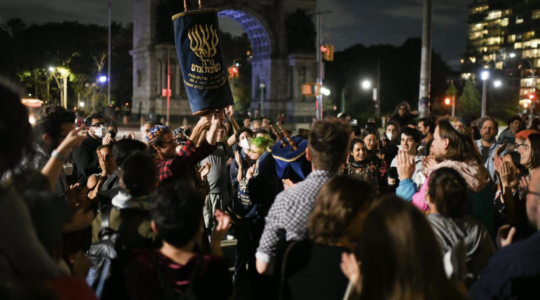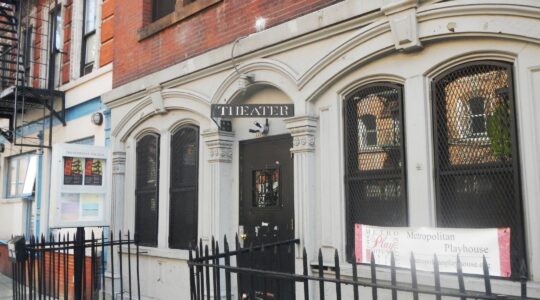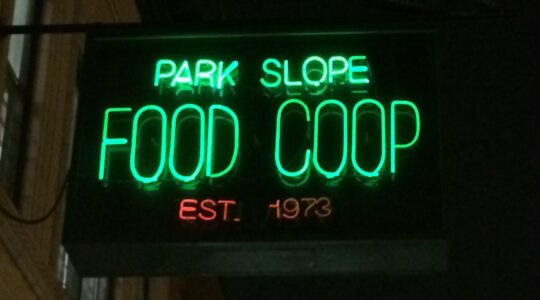If diplomacy is the art of accenting the positive, the distinguished speakers at a formal dinner Tuesday evening commemorating the 50th anniversary of Israel’s admission to the United Nations deserved the highest diplomatic marks. One would hardly have known from listening to UN Secretary-General Kofi Annan, Israeli Foreign Minister Ariel Sharon, former U.S. Secretary of State Henry Kissinger, or former Israeli Ambassador to the UN Abba Eban that for most of the last five decades Israel has been treated as a pariah in the world body. Rather, they emphasized the mutual benefits of Israel’s participation in the UN, and looked forward to strengthening future ties.
No mention was made of a 1975 UN resolution equating Zionism with racism, or of the many one-sided condemnations of Israel’s role in Mideast violence.Kofi Annan came closest to dealing with reality, acknowledging that Israel is the only member state of the UN that is not part of a regional grouping, thus limiting its involvement. He reiterated and expanded on a statement he made last year in Israel, asserting that “this anomaly should be rectified,” adding that he hoped it would be soon and promising to “keep encouraging all concerned to find a solution.”The secretary-general noted that he was pained to say that at times “United Nations decisions sparked intense anger both inside and outside Israel,” but he praised the Jewish State for its participation in UN programs to protect the global environment, fight international drug trafficking, expand democracy and bring emergency aid to people in need, including, most recently, the Kosovar refugees.
“This Israel could do more,” he said, if it were allowed to be a part of a regional group. “I look forward to working even more closely with all of you as we move ahead,” he concluded.The most moving moment of the evening, which drew some 400 diplomats and Jewish leaders, came when Eban spoke. Although he appeared hobbled and infirm, the 83-year-old diplomat spoke with his typical eloquence, recalling his role in the “miraculous” triumph of securing membership in the UN for the world’s smallest and youngest nation. “We were emotionally lonely” and fighting for survival, he said, and as Israel’s first ambassador to the UN (1949-1959), Eban said he “listened often with long suffering” to the many tirades against the Jewish State. (He once wrote that the UN was so anti-Israel that if the Arab states had proposed a resolution declaring the world flat, it would have passed overwhelmingly, with only the U.S. and Israel voting against.)But Eban said he never regretted his role “in our initial struggle to put our flag aloft in the winds of history,” and he thanked the audience for “giving meaning to that recollection.”
Kissinger, the only Jew to serve as U.S. secretary of state, said he was “never able to be objective” about Israel, the only country that has had to struggle to be recognized by its neighbors. He noted that in dealing with a number of Israeli diplomats, under a tough exterior he found an intense “yearning for peace,” and he said that no people better deserves “what the UN should stand for: security, peace and progress.”The often-controversial Sharon offered benign remarks, noting that as a participant in all of Israel’s wars and having been wounded twice on the battlefield, “I know and appreciate the vital need for peace better than those” who have not been so tested. He stressed that Israel is unique among nations in having “given up part of its historic homeland … for the sake of peace,” and that “all we ask is to enjoy the same rights as others” who are members of the international community.Dore Gold, Israel’s ambassador to the UN, offered greetings and noted that earlier in the day Israel presented a commemorative gift of a fourth century Galilee stone, depicting a menorah, shofar and lulav, to the UN for permanent display. The stone, he said, evoked the Holy Temple in Jerusalem and called attention to the centrality of the city to the Jewish people.




